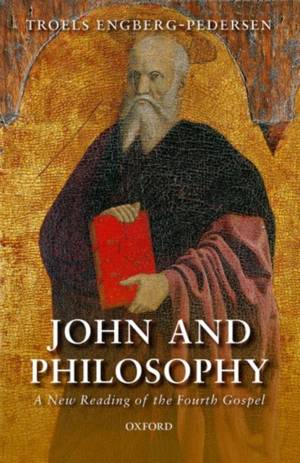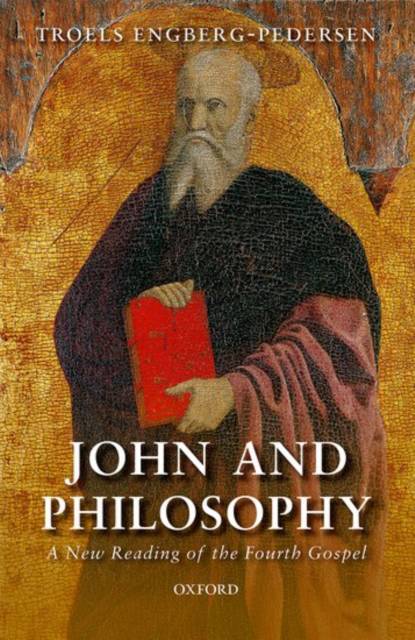
Bedankt voor het vertrouwen het afgelopen jaar! Om jou te bedanken bieden we GRATIS verzending (in België) aan op alles gedurende de hele maand januari.
- Afhalen na 1 uur in een winkel met voorraad
- In januari gratis thuislevering in België
- Ruim aanbod met 7 miljoen producten
Bedankt voor het vertrouwen het afgelopen jaar! Om jou te bedanken bieden we GRATIS verzending (in België) aan op alles gedurende de hele maand januari.
- Afhalen na 1 uur in een winkel met voorraad
- In januari gratis thuislevering in België
- Ruim aanbod met 7 miljoen producten
Zoeken
€ 265,95
+ 531 punten
Omschrijving
John and Philosophy: A New Reading of the Fourth Gospel offers a Stoic reading of the Fourth Gospel, especially its cosmology, epistemology, and ethics. It works through the gospel in narrative sequence providing a philosophical narrative reading. In each section of the gospel Troels
Engberg-Pedersen raises discusses philosophical questions. He compares John with Paul (in philosophy) and Mark (in narrative) to offer a new reading of the transmitted text of the Fourth Gospel. Of these two profiles, the narrative one is strongly influenced by the literary critical paradigm.
Moreover, by attending carefully to a number of narratological features, one may come to see that the transmitted text in fact hangs together much more coherently than scholarship has been willing to see. The other profile is specifically philosophical. Scholarship has been well aware that the
Fourth Gospel has what one might call a philosophical dimension. Engberg-Pedersen shows that throughout the Gospel contemporary Stoicism, works better to illuminate the text. This pertains to the basic cosmology (and cosmogony) that is reflected in the text, to the epistemology that underlies a
central theme in it regarding different types of belief in Jesus, to the ethics that is introduced fairly late in the text when Jesus describes how the disciples should live once he has himself gone away from them, and more.
Engberg-Pedersen raises discusses philosophical questions. He compares John with Paul (in philosophy) and Mark (in narrative) to offer a new reading of the transmitted text of the Fourth Gospel. Of these two profiles, the narrative one is strongly influenced by the literary critical paradigm.
Moreover, by attending carefully to a number of narratological features, one may come to see that the transmitted text in fact hangs together much more coherently than scholarship has been willing to see. The other profile is specifically philosophical. Scholarship has been well aware that the
Fourth Gospel has what one might call a philosophical dimension. Engberg-Pedersen shows that throughout the Gospel contemporary Stoicism, works better to illuminate the text. This pertains to the basic cosmology (and cosmogony) that is reflected in the text, to the epistemology that underlies a
central theme in it regarding different types of belief in Jesus, to the ethics that is introduced fairly late in the text when Jesus describes how the disciples should live once he has himself gone away from them, and more.
Specificaties
Betrokkenen
- Auteur(s):
- Uitgeverij:
Inhoud
- Aantal bladzijden:
- 430
- Taal:
- Engels
Eigenschappen
- Productcode (EAN):
- 9780198792505
- Verschijningsdatum:
- 9/04/2017
- Uitvoering:
- Hardcover
- Formaat:
- Genaaid
- Afmetingen:
- 152 mm x 236 mm
- Gewicht:
- 748 g

Alleen bij Standaard Boekhandel
+ 531 punten op je klantenkaart van Standaard Boekhandel
Beoordelingen
We publiceren alleen reviews die voldoen aan de voorwaarden voor reviews. Bekijk onze voorwaarden voor reviews.









